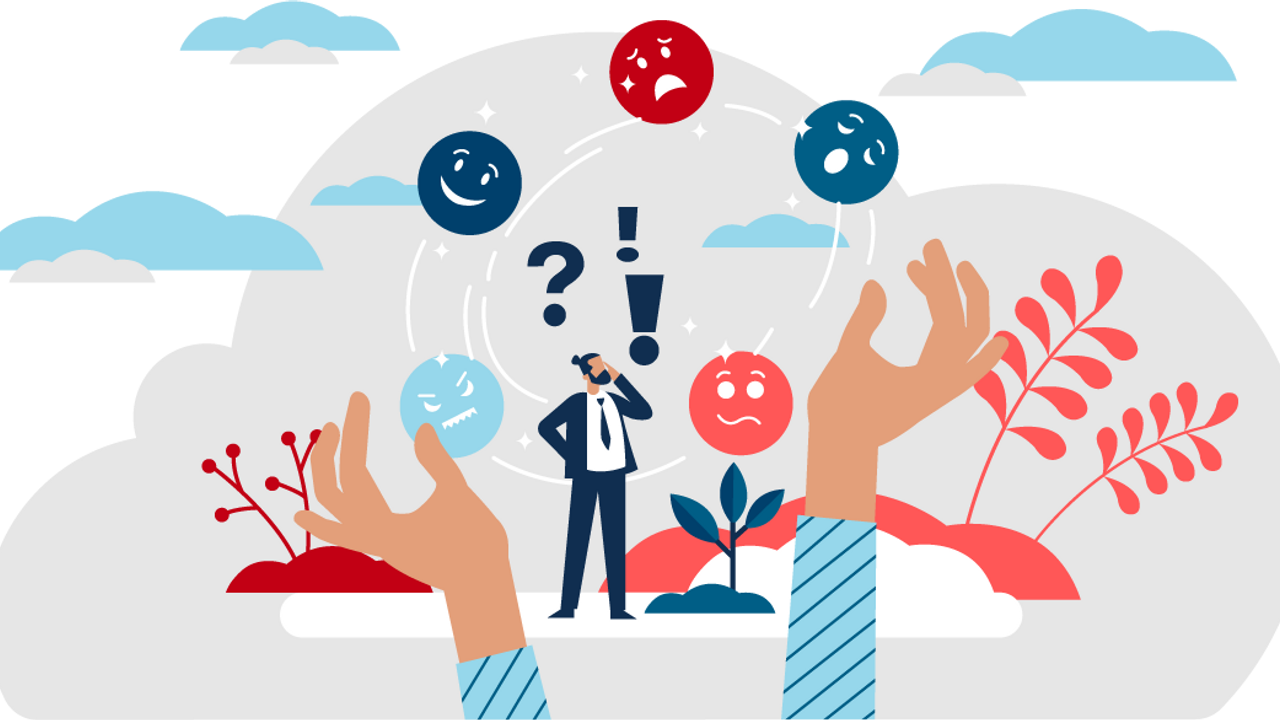It's a new year and a new opportunity to work on the most important thing readers tell me they want to develop : emotional intelligence. .
Yes, emotional intelligence can be learned. In fact, I think this is the best definition: "the learned ability to exploit the emotions of others (yours and theirs) to increase your chances of achieving your ultimate goals.
Emotional intelligence (also called emotional quotient or EQ) is the ability to understand, use and positively control one's emotions to reduce stress, communicate effectively, empathize with others, overcome challenges and defuse conflicts. Emotional intelligence helps you build stronger relationships, succeed at school and work, and achieve your professional and personal goals. It can also help you deal with your feelings, put your intentions into action, and make informed decisions about what is most important to you.
Why intelligence is it that important? emotional?
As we know, the most intelligent people are not the most successful or the most satisfied in life. You probably know people who are academically brilliant but socially inept and who are unsuccessful at work or in personal relationships. Intellectual ability or IQ (IQ) alone is not enough to succeed in life. Yes, your IQ can help you get into college, but it's your IQ that will help you deal with stress and emotions during final exams. IQ and IQ coexist and are most effective when they complement each other.

Source: google.com
Influences of Emotional Intelligence:
Your performance at school or work. High emotional intelligence can help you navigate the social complexities of the workplace, lead and motivate others, and excel professionally. In fact, many companies now consider emotional intelligence as important as technical skills when evaluating top candidates and conducting pre-hire emotional intelligence tests.
Your physical health. If you can't control your emotions, you probably won't be able to control stress. This can lead to serious health problems. Uncontrolled stress increases blood pressure, weakens the immune system, increases the risk of heart attacks and strokes, contributes to infertility and accelerates the aging process. The first step to improving emotional intelligence is learning to manage stress.
Your mental health. If you don't understand your feelings, aren't comfortable with them, or can't control them, you will also have difficulty building strong relationships. This, in turn, can make you feel alone and isolated and make mental health problems even worse.
Here are seven simple, memorable habits that people with high emotional intelligence know they need to practice to become automatic.
1. Practice invoking gratitude.
Are you counting your blessings? Naturally. But people with high emotional intelligence take it a step further, examining aspects of their lives that may not immediately spark gratitude and thinking about how they can still find a way to be grateful.

Source: google.com
Perhaps the most touching example I've ever heard: A reader once told me that she learned to be grateful for her dementia from her mother. Why? This meant that their “tumultuous” relationship was now a thing of the past and she could look after them without worry.
2. Practice being concise.
Tell me about an example that bothers me, because I probably could have made this article more concise. But taking extra time to write (or say) something shorter often means cutting out extraneous parts that you may have a little less control over. The goal is to avoid triggering an unwanted emotional reaction.
3. Practice seeing things through the eyes of others.
This is a great example of one of my favorite observations about emotional intelligence, namely that emotional intelligence is not alone. it's about being kind to people, although that can be an added benefit.
Example: If you can see things through the eyes of others, you are more likely to "sell the benefits, not the functionality" and therefore convince them to do what you want. You want them to.
4. Practice finding rhetorical escape routes.
It's about thinking about how to structure meetings so that other people can save face and agree with what you say. She would like. do it without having to admit your mistakes.
Simple example: instead of saying "I think you should do something like: “I'm sure: “You" I thought about it , but it could be an idea.
A Dutch psychologist conducted experiments to calculate how long a break should last before it becomes unpleasant.
Result: 4 seconds So the idea is that if you are willing to endure prolonged silences, other people are more likely to give in to their emotions and feel the need to fill them.
5 . Practice your usual phrases.
The biggest and easiest emotional intelligence mistake to avoid is saying things spontaneously, without thinking. What are unwanted emotional messages. .it could be.
The classic example is starting a team meeting on a Monday morning with the question: "How is everyone?" or similar language. Chances are, at least one person in the group isn't doing so well, but everyone knows you don't really want to hear the answer, at least not yet. I'm sure you can think of a better greeting.
6. Practice writing down your most important goals.
At this time, it is easier for emotions to take over and distract you from the things you really want to achieve.
But yes, if by For example, if you write, “My goal is to save enough to make a down payment on a house,” it will be a little less easy to get caught up in the excitement about something else you could spend money on.
7. Practice saying "no" to most things. (Or at least: “Thanks! Let me think about it.”)
To be honest, it has to do with writing down goals. We are more likely to say "yes" immediately based on our emotions, so answering "no" by default is a defense.
But back to number 6: It probably makes sense to give a slower response than a simple "no." Maybe try saying variations of something like:
I could go on, but I think I'll practice preaching on the second point above.
As I write in my e-book, 9 Smart Habits of people with very high emotional intelligence, increasing emotional intelligence is much more effective when the habits you want to adopt are easy to put into practice.

Source: google.com
Of course, I'm sure you would have thought of most of them anyway. But if they are useful, 2024 could be the perfect time to start.
Frequentlya Asked Questions!
What are people who are high in emotional intelligence most likely to do?
A high EQ assists you with building connections, diminish group pressure, stop struggle and further develop work fulfillment. At last, a high EI implies having the capacity to increment group efficiency and staff maintenance.
What is an effect of a high emotional intelligence quizlet?
The higher your ability to appreciate anyone on a profound level, the more probable you are to prevail in private and expert connections. There is areas of strength for a between advanced capacity to understand individuals on a deeper level and individual vanity and in general fearlessness.
Are people with high emotional intelligence more sensitive?
In spite of the fact that individuals with high EI are more delicate, more impacted by others' setback and more empathic, their more noteworthy capacity to control their feelings ought to assist them with setting feelings to the side when essential.
What is the disadvantage of high emotional intelligence?
High EQ people can likewise have an advanced capacity to control others. They risk abusing their interactive abilities by zeroing in vigorously on the profound parts of correspondence while dismissing coherent contentions.
What does emotional intelligence mean?
The capacity to appreciate individuals on a deeper level (EI) is the capacity to oversee both your own feelings and grasp the feelings of individuals around you. There are five critical components to EI: mindfulness, self-guideline, inspiration, compassion, and interactive abilities.
How can you tell if someone is emotionally intelligent?
Genuinely wise individuals will generally areas of strength for have abilities. This is possible since they are so sensitive to their own sentiments as well as those of others. They know how to manage individuals actually, and they are put resources into keeping up with solid social connections and assisting everyone around them with succeeding.

.webp)





